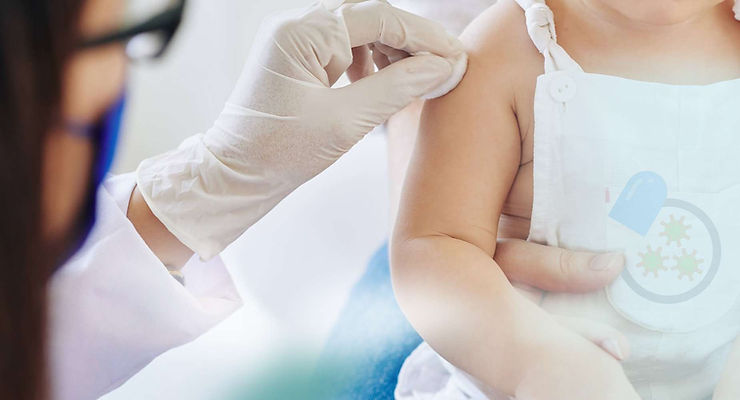
Antimicrobial Resistance (AMR) has become a global health threat with projections for ~10 million deaths per year by 2050 and it is mostly driven by the increasing unintended and unnecessary use of antibiotics. A recent study published in the journal ‘Pediatrics’ alarms that the unnecessary use of antibiotics in children under the age of two not only drives the rates of AMR but also results in diminished immune responses to four common vaccines in children, potentially due to microbiome alterations.
By measuring the antibody levels in blood among 560 children ages 6 to 24 months (342 received antibiotics, 218 didn’t receive antibiotics) vaccinated against polio, diphtheria-tetanus-pertussis, Haemophilus influenza type b, and pneumococcal vaccines, scientists demonstrated a lower level of antibodies among children who received antibiotics compared to those who didn’t.
Moreover, the immune response was lower among children who’d had multiple courses of antibiotics than those who’d had one, with each antibiotic dose associated with 5 to 11 percent lower antibody levels after initial vaccinations and 12 to 21 percent lower antibodies after booster shots, according to The Scientist Magazine ®. Collectively, these data underscore the importance of proper and rapid pathogen identification using effective diagnostic tools to use the right antibiotic when it is absolutely needed.

